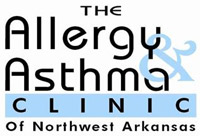Between 2010 and 2022, the CDC identified over 110,000 suspected cases of alpha-gal syndrome (AGS) in the US. However, the actual number of affected individuals could be as high as 450,000 due to the requirement of positive diagnostic tests and clinical exams for official diagnosis. AGS is a severe allergic condition triggered by consuming alpha-gal, a sugar found in mammal meat and related products. Lone star ticks are primarily associated with AGS, but other tick species may also be involved, particularly in southern, midwestern, and mid-Atlantic regions of the US.
The symptoms of AGS can vary widely and may include hives, rash, nausea, heartburn, diarrhea, respiratory issues, low blood pressure, swelling, dizziness, faintness, or severe stomach pain. Proper evaluation, diagnosis, and management of AGS are crucial to ensure timely and effective treatment. People who suspect AGS can seek consultation with the Allergy & Asthma Clinic of Northwest Arkansas, provide a detailed symptom history, and consider diagnostic testing for alpha-gal antibodies, including allergy skin testing. Additionally, preventing tick bites is essential in reducing the risk of AGS and other tick-borne diseases, emphasizing the significance of public awareness campaigns and education about tick-bite prevention.
Read the full press release from CDC.

